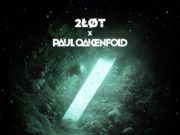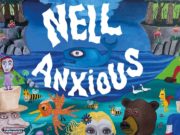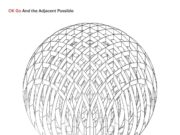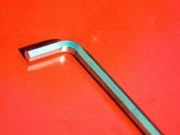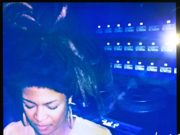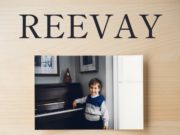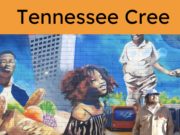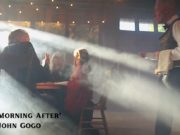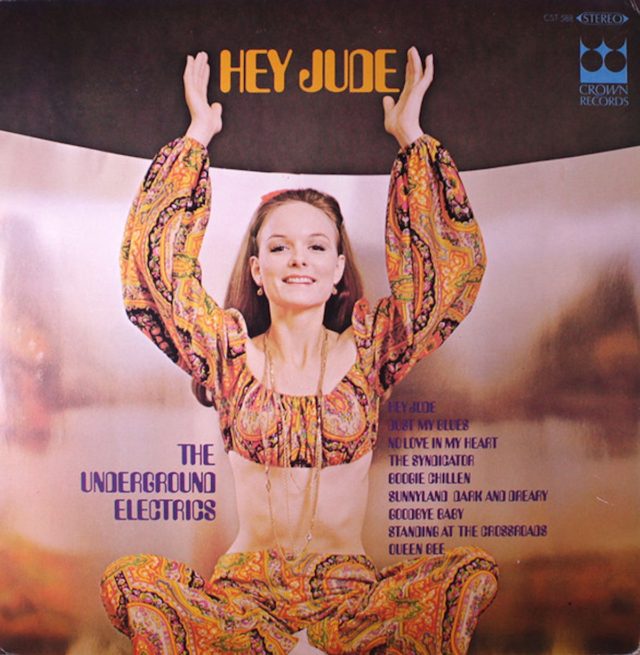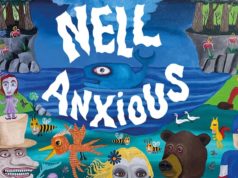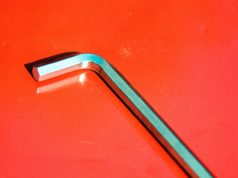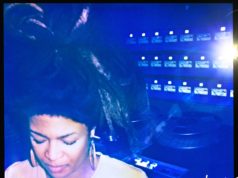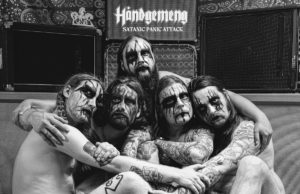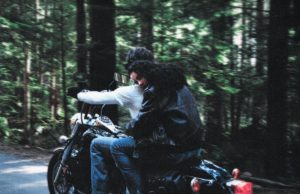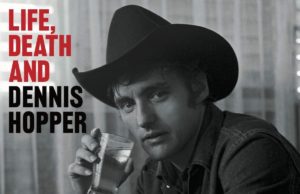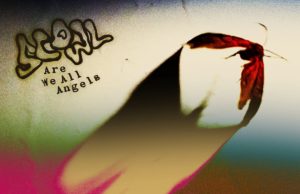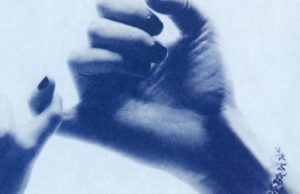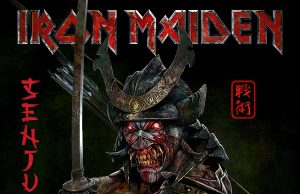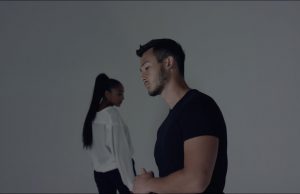 Crown Records had a reputation as “the king of junk record labels.” It’s a bit shocking considering the label was the brainchild of the Bihari Brothers — one of the most important foursomes in the history of rock ’n’ roll.
Crown Records had a reputation as “the king of junk record labels.” It’s a bit shocking considering the label was the brainchild of the Bihari Brothers — one of the most important foursomes in the history of rock ’n’ roll.
Lester, Joe, Saul and Jules Bihari were the sons of an Austria-Hungary immigrant family. Initially based in Tulsa, the family relocated to Los Angeles in 1941. Jules got a gig stocking jukeboxes and discovered so many of his customers wanted blues records, which were hard to come by. He, Saul and Joe founded Modern Records in 1945. They financed a pressing plant, did their own distribution and scouted and signed artists — eventually hiring Ike Turner as one of their talent scouts. They built Modern into a major blues and R&B label. They gave B.B. King his first record deal. The Bihari brothers were instrumental (no pun intended) in the development of rock ’n’ roll as their artists included Elmore James, John Lee Hooker, Etta James and Lightnin’ Hopkins. These artists had records out on Modern as well as the Bihari’s subsidiary labels RPM, Flair and Meteor Records. It’s these records which became hot commodities in the U.K. with young, impressionable musicians like Jimmy Page, Peter Green, Brian Jones, Paul McCartney and John Lennon. In America, the Biharis’ artists influenced Elvis Presley, Little Richard, Jerry Lee Lewis, Eddie Cochrane, Buddy Holly and Bill Haley.
With the success of Modern, RPM, Flair and Meteor Records, the brothers started creating “budget” labels, one of which was Crown Records. It was announced in Billboard in March 1957 as a $1.98 LP label. Initially, the artists on Crown were reputable — The Dave Clark Five, Vic Damone and Trini Lopez — but things shifted in the 1960s. As rock became popular, the Bihari brothers’ competition became more formidable. Modern Records was forced into bankruptcy but the brothers managed to keep their catalog, eventually moving it to their subsidiary Kent Records. But after 1957, Crown Records was where the brothers released all their new material until it folded in 1972. In the face of huge corporate label competition, the Biharis’ stable of artists grew shittier and shittier by the month.
They repackaged earlier Modern, RPM and Meteor albums, created compilations from those recordings and eventually the only artists they could sign were manufactured ones consisting of studio musicians who were forced to perform fad-specific music to cash in on the latest craze. Surf albums, motorbike albums, and by 1967 — flower power records. So many family-owned labels did the same thing. Cy Leslie’s Pickwick created the Design Records label, which put out the ridiculous 1968 album Electronic Music To Blow Your Mind By!!! by The Love Machine. Yes, it had three exclamation marks, and no — The Love Machine was not a real band. I have that record. It’s neither freaky nor funny enough, really, for me to hang on to it. Problem is, nobody wants to buy it off me, either.
So, when I spotted a copy of Hey Jude by The Underground Electrics, I kind of knew what to expect. Kind of, but I was still shocked.
First, the album — like most Crown Records releases — is cheaply made. The covers fell apart, there was never an inner sleeve and the sub-rate vinyl got ticks, scratches and scuffs almost instantly. The vinyl almost looks like a vanity lathe cut. I’m not sure when Hey Jude came out, but presumably while The Beatles’ hit of the same name was still in the charts. A cover of the song serves as the opening track. All the songs are covers, or pseudo-covers. There were three pressings of the record — an American one and two Canadian ones. The Canadian ones had covers manufactured at Cardinal Record Corp., which used to be based on a property which is now Wallace Emerson Park on Dufferin Street in Toronto. Next to the McDonald’s.
The idea behind albums like these was to trick record buyers into thinking they were buying a cutting-edge masterpiece by the next Strawberry Alarm Clock or West Coast Pop Art Experimental Band. But these are just studio musicians either given songs to do, or encouraged to write something genre-specific. There’s a good chance many of these unknown, uncredited musicians went on to have notable careers. Maybe, they became stars.
This is exactly what happened with Lou Reed. The eventual founder and frontman of The Velvet Underground got his start after moving to New York City in 1964. Reed scored a job as an in-house songwriter for Pickwick. A fan favourite of his time there is the single The Ostrich, which was created as a parody of dance-craze songs of the day like The Twist. Pickwick put together a fake band called The Primitives, which featured Reed on vocals and guitar, and eventual bandmate John Cale on bass. Reed also appeared uncredited as the vocalist of Pickwick group The Surfsiders on a record of Beach Boys covers.
So, sometimes, these manufactured, budget fad records can be secretly awesome. I’m not sure I’d use that word to describe Hey Jude, but it certainly is going to be a conversation piece in my collection for a while. Let’s check it out together…
It opens with the title track. This is the greatest butchering of a Beatles song I have ever heard. The tempo shifts, the singer has entirely the wrong voice and he doesn’t seem to know the song at all. It starts off crappy, and then he gets entirely lost by the time we get to the “anytime you feel the pain” part. He spends the remainder of the song singing a measure behind the melody. So, clearly this is a first-and-only take. The producer — whoever that is — didn’t feel this was worthy of a second attempt. And then, they don’t even bother to do the naaa-na-na-nana-na-nah part at all. It’s like doing Sympathy For The Devil without the hoo-hoos, or Layla without the piano part that Eric Clapton and Jim Gordon stole from Rita Coolidge.
It really is astounding, isn’t it? I got my copy of this thing for free, but it typically sells for around $5 on Discogs — though I did notice some wiseacre trying to sell one on Amazon for $100. I love the cover of John Lee Hooker’s Boogie Chillen. It’s like garage meets Flying Lizards, due to the straight, spoken, sleepy drawl vocals — which, hilariously, enunciate it as “children.”
Figuring out who the musicians are on these types of records is difficult. These songs were re-released on a CD with a bunch of songs by another fake group called The Firebirds. Apart from the vocalist, I’m rather suspicious that they’re actually the same musicians. Same goes with the bands 31 Flavors and The Electric Firebirds. They’re probably all the same musicians. At times, the music they made is pretty killer.
I’m pretty sure I know who one of the musicians is — the guitarist. Some sleuthing of those similar-sounding bands led me to a guy named Jerald Kolbrak. Just like the fake bands he performed with, Kolbrak opted for a variety of names — Jerry Cole, Billy Baker, Billy Boyd and Don Daily. Superhero names!
Kolbrak played guitar for The Underground Electrics, The Generation Gap, 101 Strings, Mike Adams and the Red Jackets, The Animated Egg, The Bandits, The Black Diamonds, The Blasters, California Earthquake, The Champs, The Country Boys, Jerry Cole & the Stingers, Jerry Cole and His Spacemen, The Detours, Mr. Gasser & the Weirdos, The Cee-Gees, The Haircuts and the Impossibles, The Hornets, The Hot Rodders, The Id, The Kickstands, The Knights, Jerry Kole and the Strokers, The Mustangs, The Projection Company, The Scramblers, The Stone Canyon Rock Group, The Super Stocks, T. Swift and the Electric Bag, Them (not that one), Billy J. Tyler and Palomino Boys, and The Winners. Bad Cat Records’ blog estimates that Jerry Cole appeared under various names in nearly 40 acts — many times, without his knowledge.
Cole did make some albums for legit labels and studios. He plays on The Byrds’ Mr. Tambourine Man, performed a few uncredited guitar solos for Carl Wilson during The Beach Boys’ early days, was one of the musicians gathered to help record Pet Sounds, and did sessions for Phil Spector. In 1965, he formed the band The Id with songwriter/producer Paul Arnold. RCA Victor signed them and put out the album The Inner Sounds of The Id. Safe bet that some of these musicians — drummer Don Dexter, bassist Glenn Cass and rhythm guitarist Norm Cass — are on the Hey Jude album.
Anyway, back to The Underground Electrics. Boogie Chillen is followed by another Hooker cover, The Syndicator. The guitar is panned hard to one side, and the drums and bass to the other. Weird. With a decent mix, this would actually be pretty awesome. Check the solo halfway through. Definitely a first pass. The more I listen to this, it reminds me of tapes we used to make when I was in high school where we’d sing over top of instrumental tracks already recorded by James Last, Tijuana Brass or any of those Moogsploitation records. This Hey Jude album sounds — on some songs more than others — as though the vocals were added to an existing recording. It explains why the guy often has trouble with his pace. Sounds like office karaoke night, except with loads of weed and John Lee. An educated guess would be that the band you hear is The Id, and the vocals are those of co-founder Paul Arnold.
No Love In My Heart wraps Side 1. This might be the best overall performance on the album. Our drawly, weird singer actually pitches up and shots a bit… and the drummer gets fancy. The song — an Elmore James cover — rocks at times and has some great dynamics. The Underground Electrics are basically trying to do what Led Zeppelin would become famous for doing in just a few months’ time. Not as heavy as Blue Cheer, but something approaching Steppenwolf or Iron Butterfly. Call them Blue Steppenfly.
I’ll leave the rest for you to explore on your own. Suffice to say, this album would be so much better if they never bothered with the title track. Jerry Cole died of a heart attack in 2008, age 68.
• • •
Area Resident is an Ottawa-based journalist, recording artist, music collector and re-seller. Hear (and buy) his music on Bandcamp, email him HERE, follow him on Instagram and check him out on Discogs.


